theartsdesk on Vinyl 29: The Beatles, Kraftwerk, Sikth, ESG, Alice Coltrane and more | reviews, news & interviews
theartsdesk on Vinyl 29: The Beatles, Kraftwerk, Sikth, ESG, Alice Coltrane and more
theartsdesk on Vinyl 29: The Beatles, Kraftwerk, Sikth, ESG, Alice Coltrane and more
The most wide-ranging record reviews out there

Reviewed this month with the windows open, in weather hot enough to warp records, this month theartsdesk on Vinyl casts two ears over 34 releases, starting with a striking foray into elegant songwriting and ending with Now That’s What I Call Classic Rock.
VINYL OF THE MONTH
The Fiction Aisle Heart Map Rubric (Brighton’s Finest)
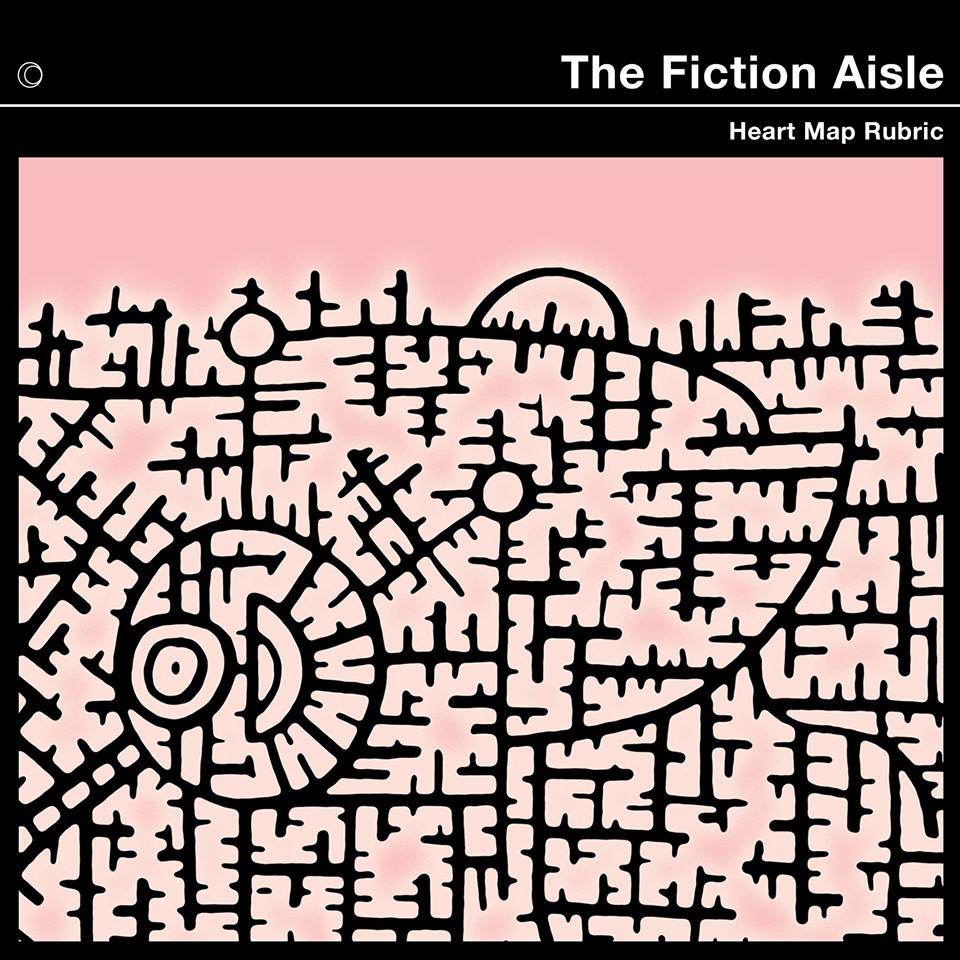 Overdue vinyl release for the debut from Electric Soft Parader Thomas White’s latest incarnation, which came out at the start of last year. Think Smiths-era Morrissey or Lloyd Cole writing a coming out album of heartache, but doing so via the elegance of pre-rock’n’roll songwriters, and a smidgeon of Robert Wyatt. It is, in other words, original and touching, lathered in strings in places. Arriving on two discs in lyric inner sleeves, it’s heart-on-sleeve stuff but not mopey and maudlin. White looks everything in the eye with a clarity that’s both moving and pop. The first three sides are Heart Map Rubric, a good album, but the fourth side is even better, offering up the four best songs from the Floyd-ian follow-up album, Fuschia Days. These come with an added, unreleased number called “Outskirts (Revisited)” that’s also stunning. The Fiction Aisle deserve a public profile to match the quality of these songs.
Overdue vinyl release for the debut from Electric Soft Parader Thomas White’s latest incarnation, which came out at the start of last year. Think Smiths-era Morrissey or Lloyd Cole writing a coming out album of heartache, but doing so via the elegance of pre-rock’n’roll songwriters, and a smidgeon of Robert Wyatt. It is, in other words, original and touching, lathered in strings in places. Arriving on two discs in lyric inner sleeves, it’s heart-on-sleeve stuff but not mopey and maudlin. White looks everything in the eye with a clarity that’s both moving and pop. The first three sides are Heart Map Rubric, a good album, but the fourth side is even better, offering up the four best songs from the Floyd-ian follow-up album, Fuschia Days. These come with an added, unreleased number called “Outskirts (Revisited)” that’s also stunning. The Fiction Aisle deserve a public profile to match the quality of these songs.
Ex People Bird (New Heavy Sounds)
 Raucously heavy riffage, arriving on black’n’white art photo inner sleeve. Producer Wayne Adams and his east London studio Bear Bites Horse must be partly responsible for the sheer WEIGHT of this production. It doesn’t speed along; it revels instead in detuned riffs with the pummelling force of panzer divisions driving full pelt into brick-backed steel plating. Ex People are a female-fronted and women-centric London four-piece who have a touch of Deap Vally and Royal Blood about their sound, but via seriously fuzzed-out stoner metal. In fact, take the last reference point as the main reference point. Bird is a hazy wall of smudged guitar assault but laced with a socially conscious post-punk lyrical sensibility (albeit low in the mix). As a debut album, it’s a riveting statement of intent. Comes on red vinyl that blurs into a blobby brown centre, like an inverted healing wound.
Raucously heavy riffage, arriving on black’n’white art photo inner sleeve. Producer Wayne Adams and his east London studio Bear Bites Horse must be partly responsible for the sheer WEIGHT of this production. It doesn’t speed along; it revels instead in detuned riffs with the pummelling force of panzer divisions driving full pelt into brick-backed steel plating. Ex People are a female-fronted and women-centric London four-piece who have a touch of Deap Vally and Royal Blood about their sound, but via seriously fuzzed-out stoner metal. In fact, take the last reference point as the main reference point. Bird is a hazy wall of smudged guitar assault but laced with a socially conscious post-punk lyrical sensibility (albeit low in the mix). As a debut album, it’s a riveting statement of intent. Comes on red vinyl that blurs into a blobby brown centre, like an inverted healing wound.
Kraftwerk 3-D: The Catalogue (Kling Kang/Parlophone)
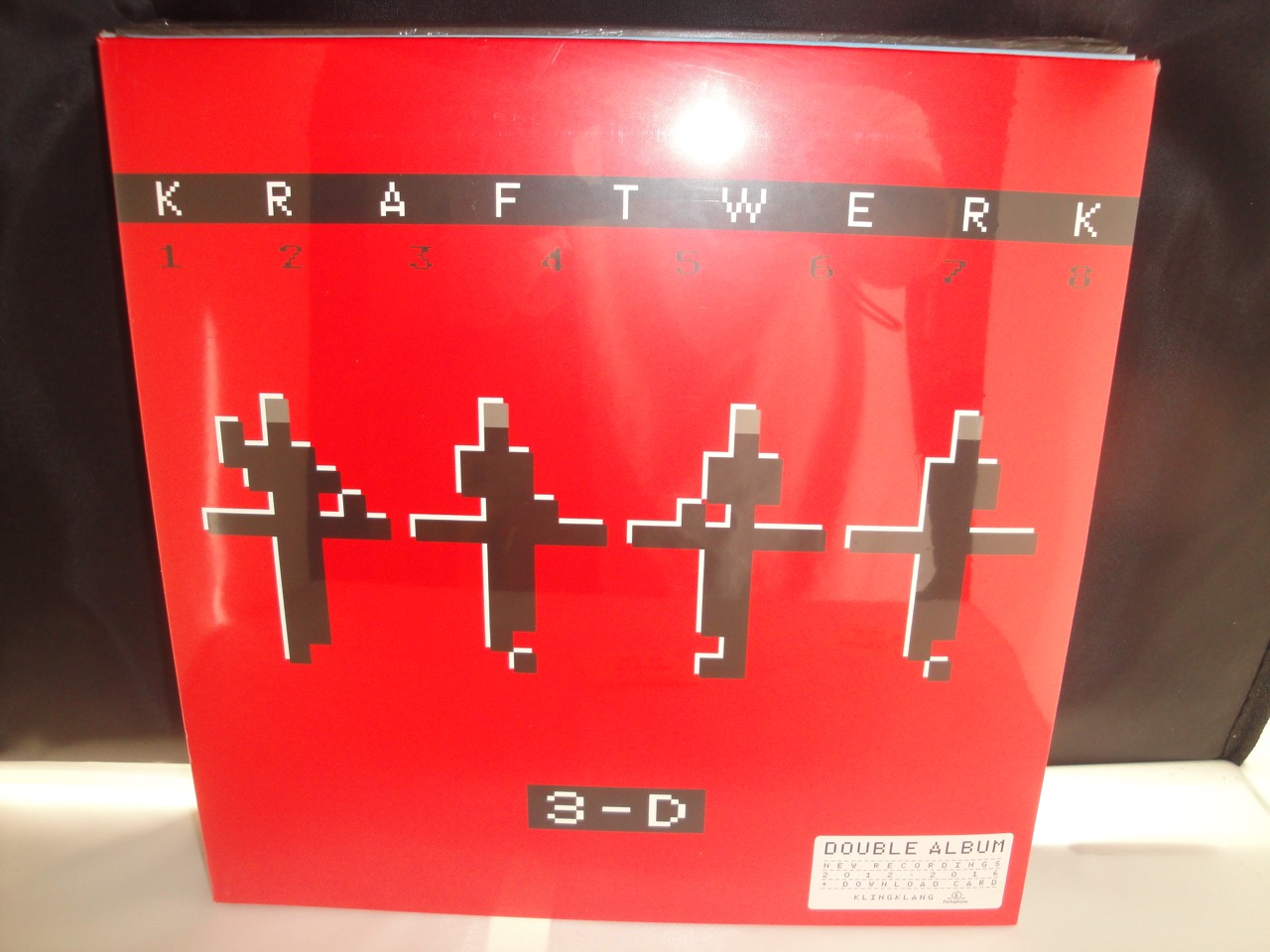 Sadly theartsdesk on Vinyl did not get its hands on the nine album vinyl boxset, but the double gatefold taster is pretty fine nonetheless. The idea is that the peerless Dusseldorf electronic innovators offer up new live versions of their albums, recorded during their endless rounds of the world’s swishest venues in recent years (eg, MOMA, New York and The Tate Modern, London). In fact, it’s a chance for Ralf Hutter, the final remaining member of the original Kraftwerk, to clean up and modernise his back catalogue using equipment his band’s career predicted decades ago. It’s really only for obsessive fans, of which Krafwerk have many, almost exclusively male. It’s not a live album in the sense of it capturing the chemistry of an occasion, and not all the songs benefit from the clinical treatment, although, let’s face it, Kraftwerk were never going to aim for the feel of Motörhead’s No Sleep ‘til Hammersmith. However, given the way time signatures in pop have sped up over the decades, so that Krafwerk’s original albums can sound slow and ambient to 21st Century ears, the heightened pace on some songs adds energy. I am always bowled over by many of these pieces of music, and have been for years, so it’s hard to hear them as, say, a contemporary 18-year-old might. Whatever Hutter and coshave done here sometimes anaesthetises the originals’ unique spark, but there are also moments when the tunes reveal themselves in new ways. When the central motif of “Geiger Counter/Radioactivity” ticks in, for instance, the hairs on my arms stood up and a blissful enzyme tingle ran from the centre of my spine into my brain.
Sadly theartsdesk on Vinyl did not get its hands on the nine album vinyl boxset, but the double gatefold taster is pretty fine nonetheless. The idea is that the peerless Dusseldorf electronic innovators offer up new live versions of their albums, recorded during their endless rounds of the world’s swishest venues in recent years (eg, MOMA, New York and The Tate Modern, London). In fact, it’s a chance for Ralf Hutter, the final remaining member of the original Kraftwerk, to clean up and modernise his back catalogue using equipment his band’s career predicted decades ago. It’s really only for obsessive fans, of which Krafwerk have many, almost exclusively male. It’s not a live album in the sense of it capturing the chemistry of an occasion, and not all the songs benefit from the clinical treatment, although, let’s face it, Kraftwerk were never going to aim for the feel of Motörhead’s No Sleep ‘til Hammersmith. However, given the way time signatures in pop have sped up over the decades, so that Krafwerk’s original albums can sound slow and ambient to 21st Century ears, the heightened pace on some songs adds energy. I am always bowled over by many of these pieces of music, and have been for years, so it’s hard to hear them as, say, a contemporary 18-year-old might. Whatever Hutter and coshave done here sometimes anaesthetises the originals’ unique spark, but there are also moments when the tunes reveal themselves in new ways. When the central motif of “Geiger Counter/Radioactivity” ticks in, for instance, the hairs on my arms stood up and a blissful enzyme tingle ran from the centre of my spine into my brain.
Various Funky Chimes: Belgian Grooves From the 70’s Part 1 + Part 2 (NEWS)
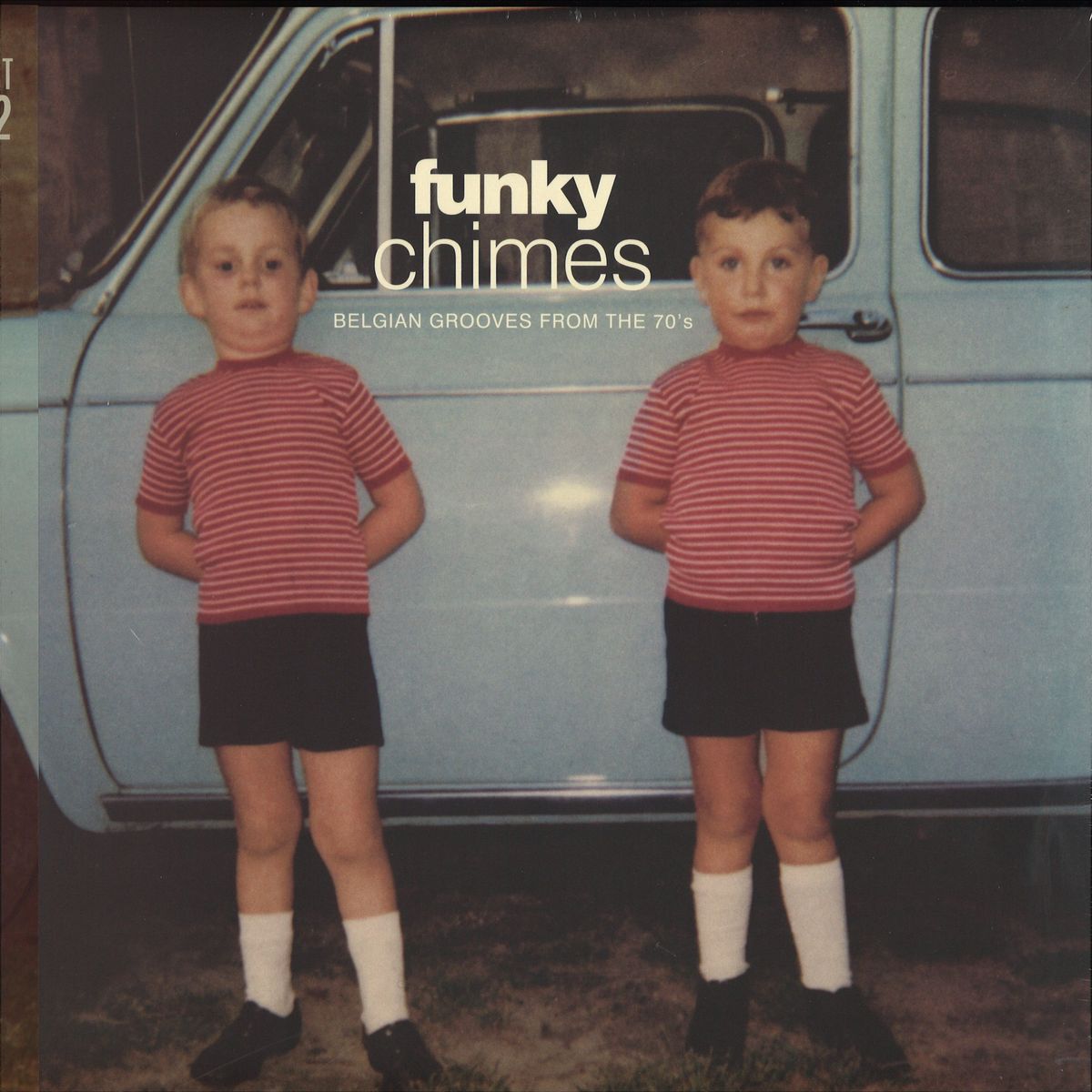 Two collections of obscure “dance” tracks, although, in practice, much of it’s more hang-out bar head-nodding than actually foot-moving. In other words, there’s plenty of easy listening kitsch and library record-ish jazz fare, but almost all of it is supremely groovy (even if it occasionally drifts into what might be incidental music from the ancient TV show The Professionals). I have a job ignoring the hideous “70’s” in the title. Please, it’s ‘70s or Seventies, the latter being the preferred form at theartsdesk, but “70’s” is just misplaced apostrophe hell. Leaving such irrelevant trivia behind and digging into the music, the treats are multifarious: the outrageously catchy but naffly titled “Travelling on Rhythms” by Bud Hunga and his Diplomatic Music Experience is stripper music in excelsis; the orgasmic, garage band-ish “X” by André Brasseur sounds like something off a late period Nuggets compilation: the light-as-air guitar play on The Flying Guitar’s cover of the Jeff Beck Group & Donovan’s “Barabajagal” is outrageously feel-good; the 14 minute “Electronic System III” suite , made by a pre-Telex Dan Lacksmann in 1974, shows the Belgians were no slouch in the Tangerine Dream-esque synth department; Louis Van Rijmenant would later go on to create the horror that is “The Birdie Song” by The Tweets but in 1972 he was busy as part of the catchily monikered Seletasound 88 & the Bob Boon Singers, making weird dubby twang music; and The Free Pop Electronic Concept’s “Chewing Gum Delerium” doesn’t really know what it wants to be but takes a delightful nine minutes of wobbly Moog and guitar jamming to find out. Two essential albums for those who enjoy music that has much fun going to bizarre places, although The Sumos’ “My Chinese Girl Likes Kung Fu Fighting” might not go down too well with the PC set. Both on double in info-packed gatefold.
Two collections of obscure “dance” tracks, although, in practice, much of it’s more hang-out bar head-nodding than actually foot-moving. In other words, there’s plenty of easy listening kitsch and library record-ish jazz fare, but almost all of it is supremely groovy (even if it occasionally drifts into what might be incidental music from the ancient TV show The Professionals). I have a job ignoring the hideous “70’s” in the title. Please, it’s ‘70s or Seventies, the latter being the preferred form at theartsdesk, but “70’s” is just misplaced apostrophe hell. Leaving such irrelevant trivia behind and digging into the music, the treats are multifarious: the outrageously catchy but naffly titled “Travelling on Rhythms” by Bud Hunga and his Diplomatic Music Experience is stripper music in excelsis; the orgasmic, garage band-ish “X” by André Brasseur sounds like something off a late period Nuggets compilation: the light-as-air guitar play on The Flying Guitar’s cover of the Jeff Beck Group & Donovan’s “Barabajagal” is outrageously feel-good; the 14 minute “Electronic System III” suite , made by a pre-Telex Dan Lacksmann in 1974, shows the Belgians were no slouch in the Tangerine Dream-esque synth department; Louis Van Rijmenant would later go on to create the horror that is “The Birdie Song” by The Tweets but in 1972 he was busy as part of the catchily monikered Seletasound 88 & the Bob Boon Singers, making weird dubby twang music; and The Free Pop Electronic Concept’s “Chewing Gum Delerium” doesn’t really know what it wants to be but takes a delightful nine minutes of wobbly Moog and guitar jamming to find out. Two essential albums for those who enjoy music that has much fun going to bizarre places, although The Sumos’ “My Chinese Girl Likes Kung Fu Fighting” might not go down too well with the PC set. Both on double in info-packed gatefold.
ESG Step Off (Fire)
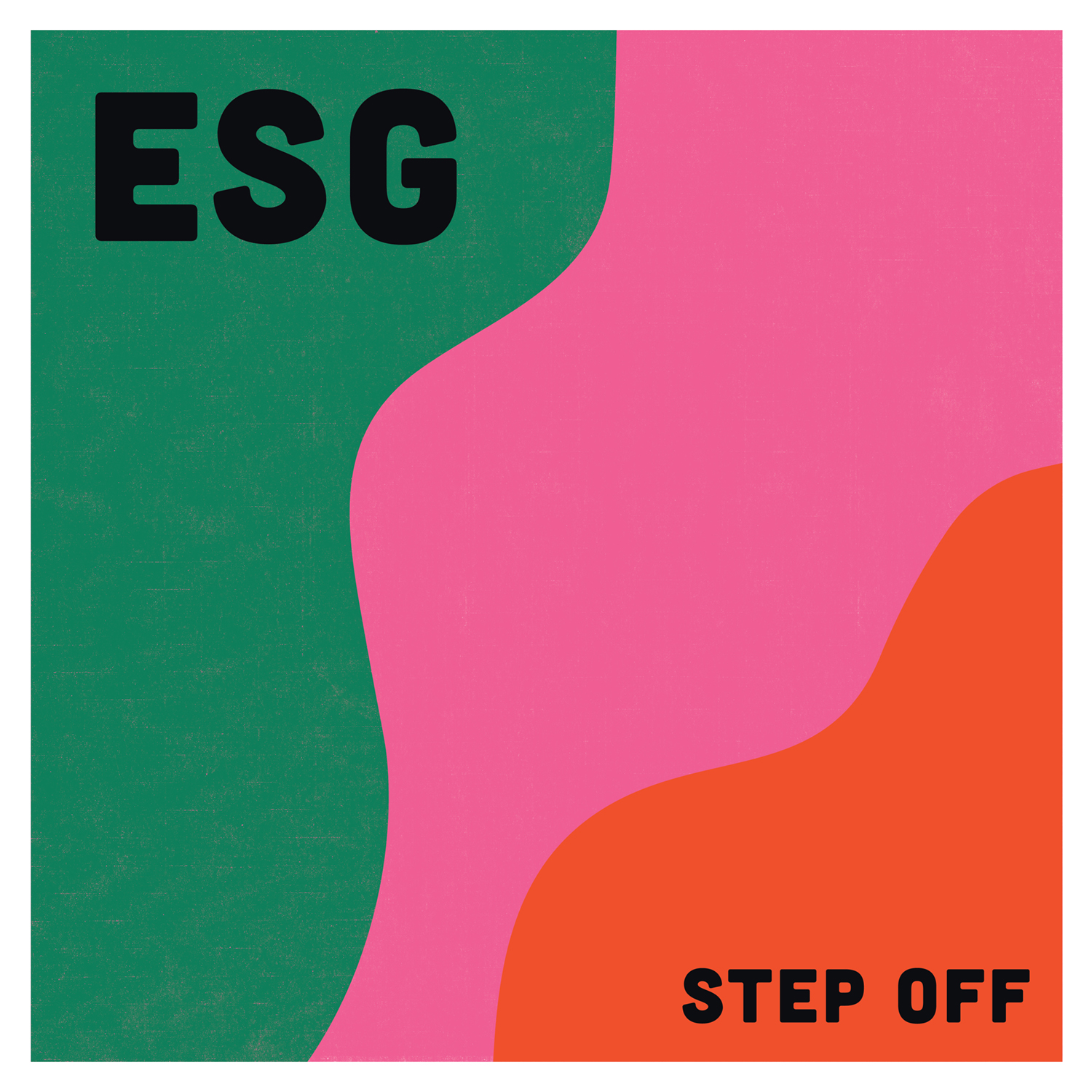 Bands can have multiple levels of influence as the years pass. Some are catalysts, directly causing fires to start in the bellies of musicians, exploding a scene into being. Others exist on the perimeters, their music bleeding in from the sidelines, endlessly permeating until, one day, long after their time, they seem the most influential of all. New York bands ESG and Liquid Liquid fall into this latter category. Both existing at the dawn of the Eighties, their percussive stripped-down abstract take on funk is hugely influential. Sister act ESG reformed at the start of the 21st Century, resulting in this 2002 seven-tracker, now reissued by Fire in a new sleeve by artist Hannah Alice. It’s less skronky than their early material, more dubby and relaxed, but still mines its own stark territory. Check out “It’s Not Me” for proof, a song of only bass and vocals. The Scroggins sisters still had it then and, by most accounts of their live shows in recent times, they still do.
Bands can have multiple levels of influence as the years pass. Some are catalysts, directly causing fires to start in the bellies of musicians, exploding a scene into being. Others exist on the perimeters, their music bleeding in from the sidelines, endlessly permeating until, one day, long after their time, they seem the most influential of all. New York bands ESG and Liquid Liquid fall into this latter category. Both existing at the dawn of the Eighties, their percussive stripped-down abstract take on funk is hugely influential. Sister act ESG reformed at the start of the 21st Century, resulting in this 2002 seven-tracker, now reissued by Fire in a new sleeve by artist Hannah Alice. It’s less skronky than their early material, more dubby and relaxed, but still mines its own stark territory. Check out “It’s Not Me” for proof, a song of only bass and vocals. The Scroggins sisters still had it then and, by most accounts of their live shows in recent times, they still do.
Various Zaire 74: The African Artists (Wrasse)
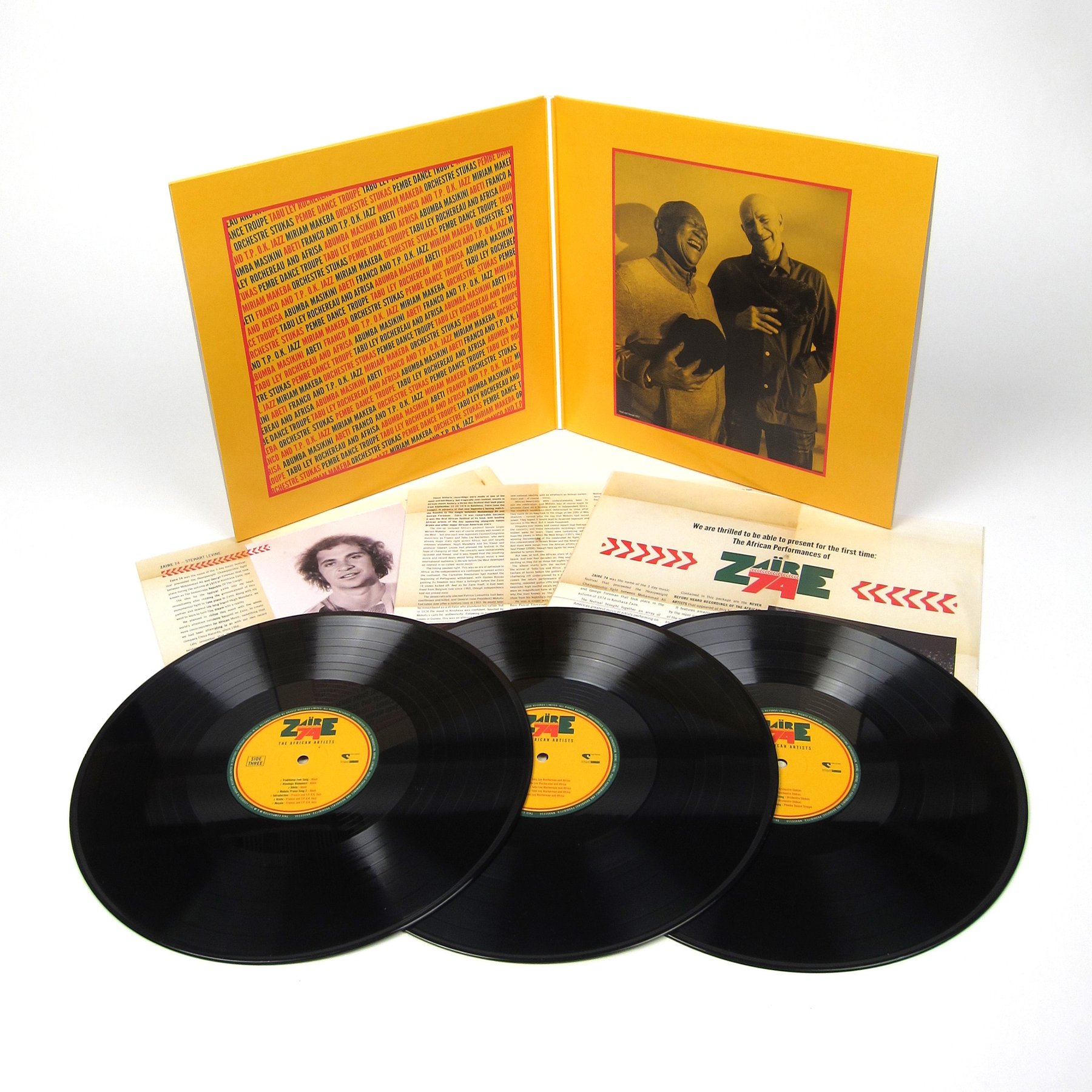 The "Rumble in the Jungle" boxing match between Muhammad Ali and George Foreman, which took place in Kinsasha in 1974, has an ongoing fascination, bubbling back into the public consciousness after the 1996 documentary When We Were Kings, and the 2008 documentary Soul Power. The latter focused on the concert that accompanied the event, but with much made of its American stars such as James Brown, The Spinners, and Bill Withers. Zaire 74 on triple vinyl in double photo/info gatefold with inner sleeves covered in the story of the events, plus photos, focuses exclusively on the African acts who played. The notes and info reveal a host of details behind the concert, setting the scene, but the recordings themselves are the real treat with Abumba Masikini, Abeti Masikini, Tabu Ley Rochereau & Afrisa, Franco & TP OK Jazz, Orchestre Stukas, and a stripped back acoustic performance from Miriam Makeba. The whole thing is overflowing with ripe energy and, despite the presence of various “praise songs” for Zaire’s disgraceful dictator Mobutu, it’s a belting collection that captures the excitement of the occasion, the heat of anticipation, and, most of all, the fire in the bellies of these African artists giving their all in one of the biggest showcases of their careers.
The "Rumble in the Jungle" boxing match between Muhammad Ali and George Foreman, which took place in Kinsasha in 1974, has an ongoing fascination, bubbling back into the public consciousness after the 1996 documentary When We Were Kings, and the 2008 documentary Soul Power. The latter focused on the concert that accompanied the event, but with much made of its American stars such as James Brown, The Spinners, and Bill Withers. Zaire 74 on triple vinyl in double photo/info gatefold with inner sleeves covered in the story of the events, plus photos, focuses exclusively on the African acts who played. The notes and info reveal a host of details behind the concert, setting the scene, but the recordings themselves are the real treat with Abumba Masikini, Abeti Masikini, Tabu Ley Rochereau & Afrisa, Franco & TP OK Jazz, Orchestre Stukas, and a stripped back acoustic performance from Miriam Makeba. The whole thing is overflowing with ripe energy and, despite the presence of various “praise songs” for Zaire’s disgraceful dictator Mobutu, it’s a belting collection that captures the excitement of the occasion, the heat of anticipation, and, most of all, the fire in the bellies of these African artists giving their all in one of the biggest showcases of their careers.
The Beatles Sgt Pepper’s Lonely Hearts Club Band (Deluxe Edition) (Apple/Universal)
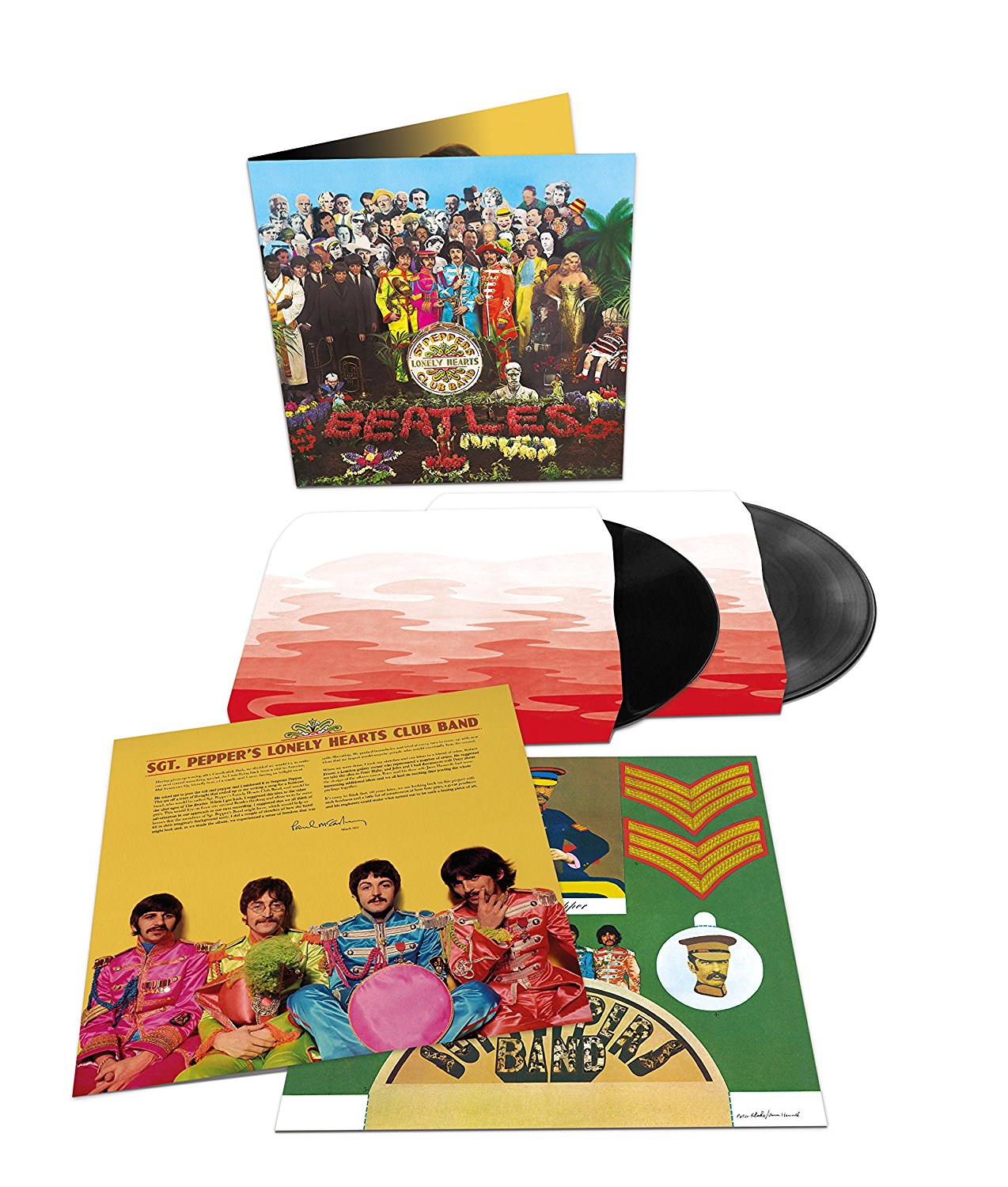 What more is there to say about this album? Now 50 years old, the hagiographic reverence for Sgt Pepper can be baffling. I wasn’t initially convinced by the premise of Simon Reynolds’ 2012 book Retromania: Pop’s Addiction To Its Own Past, which argues that popular music is now, in essence, backwards-looking and nostalgic rather than boundary-pushing and futurist, but releases such as this make his case more convincing. As a teenager in the mid-Eighties, there’s no way I’d have been interested in re-released albums from the 1930s – bring on the Bing! That aside, it would be foolish to claim this album is anything other than a corking set of songs, or to argue that the way the band used the studio wasn’t groundbreaking. This time it’s on double in gatefold, including the original's art cut-out insert, with a new stereo mix by Giles Martin, son of “fifth Beatle” George, which does its best to fill out the Beatles’ lack of low end, with the second record consisting of outtake versions from the studio sessions (also mixed by Martin junior). It seems likely most Beatles fans will know much of this already, even if it’s a novelty to hear, say, the title track’s ninth take descending into echoing chat between Paul and John, or McCartney slowly finding his way to the organ line on “Lucy in the Sky with Diamonds”. No-one but a completist Beatles-phile needs this and there are fan sites which study such minutiae far better than theartsdesk on Vinyl ever will. For the rest of us, Sgt Pepper is always worth an occasional revisit but it’s not vital to own this version.
What more is there to say about this album? Now 50 years old, the hagiographic reverence for Sgt Pepper can be baffling. I wasn’t initially convinced by the premise of Simon Reynolds’ 2012 book Retromania: Pop’s Addiction To Its Own Past, which argues that popular music is now, in essence, backwards-looking and nostalgic rather than boundary-pushing and futurist, but releases such as this make his case more convincing. As a teenager in the mid-Eighties, there’s no way I’d have been interested in re-released albums from the 1930s – bring on the Bing! That aside, it would be foolish to claim this album is anything other than a corking set of songs, or to argue that the way the band used the studio wasn’t groundbreaking. This time it’s on double in gatefold, including the original's art cut-out insert, with a new stereo mix by Giles Martin, son of “fifth Beatle” George, which does its best to fill out the Beatles’ lack of low end, with the second record consisting of outtake versions from the studio sessions (also mixed by Martin junior). It seems likely most Beatles fans will know much of this already, even if it’s a novelty to hear, say, the title track’s ninth take descending into echoing chat between Paul and John, or McCartney slowly finding his way to the organ line on “Lucy in the Sky with Diamonds”. No-one but a completist Beatles-phile needs this and there are fan sites which study such minutiae far better than theartsdesk on Vinyl ever will. For the rest of us, Sgt Pepper is always worth an occasional revisit but it’s not vital to own this version.
Vallenfyre Fear Those Who Fear Him (Century Media) + Sikth The Future in Whose Eyes (Peaceville) + DragonForce Reaching Into Infinity (Electric Generation)
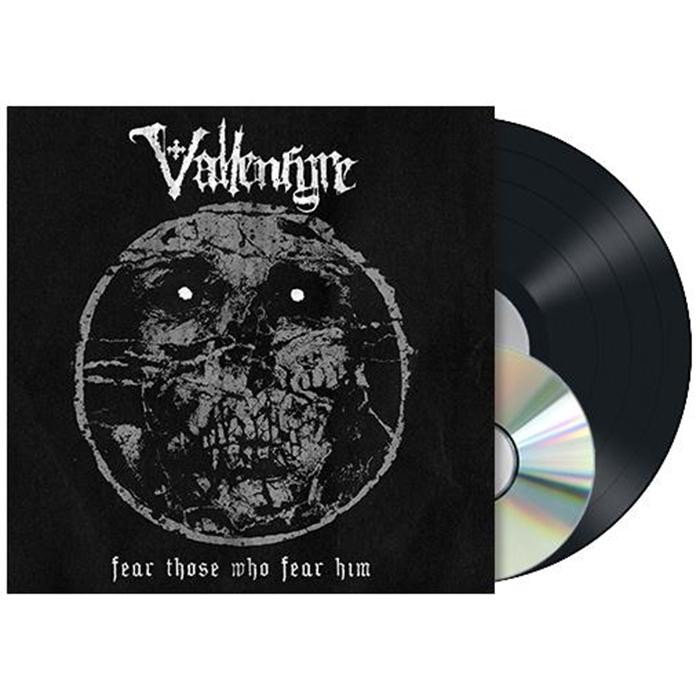 Three stonking metal releases, very different from each other, but all worth slapping on the turntable. Vallenfyre are a side-project of Yorkshire goth-metal outfit Paradise Lost, put together by that band’s leader, Gregor Mackintosh. It’s their third album and arrives in sinister black’n’grey gatefold with 12” x 12” lyric insert. Mackintosh’s “singing” sounds entirely like a demon croaking with guttural wrath in an Eighties horror film. His lyrics are all “This circle of vice/Sleep in oblivion/The descent of remorse/We, the repulsive, of sinful breast”-type stuff. But what makes the whole thing worthwhile is the buzzsaw storm of guitar interplay and calculatedly apoplectic drums. Next up is Sikth. If a metal band’s success can be judged by the regularity
Three stonking metal releases, very different from each other, but all worth slapping on the turntable. Vallenfyre are a side-project of Yorkshire goth-metal outfit Paradise Lost, put together by that band’s leader, Gregor Mackintosh. It’s their third album and arrives in sinister black’n’grey gatefold with 12” x 12” lyric insert. Mackintosh’s “singing” sounds entirely like a demon croaking with guttural wrath in an Eighties horror film. His lyrics are all “This circle of vice/Sleep in oblivion/The descent of remorse/We, the repulsive, of sinful breast”-type stuff. But what makes the whole thing worthwhile is the buzzsaw storm of guitar interplay and calculatedly apoplectic drums. Next up is Sikth. If a metal band’s success can be judged by the regularity 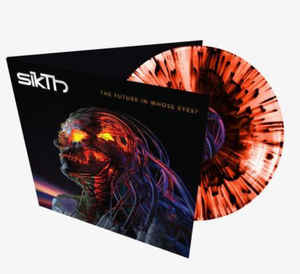 with which one sees their tee-shirts, this Watford band are steadily creeping into the public consciousness. Their third album, and first since reforming three years ago, is as restless a creature as any rock fan could desire. Over a rhythm section that gallops like the Light Brigade on 25 October 1854, complex guitar patterns leap about, showcasing the central attraction – the dextrous interplay between vocalists Mikee Goodman and Joe Rosser, the latter relatively new to the band. It’s a scripted two-hander, loosely concerning how idiotic society’s narcissistic venality is, at amphetamine velocity. It’s thoroughly energetic and entertaining, and comes in a lyric inner sleeve on what looks like plain transparent vinyl spattered with pulped salmon. Finally,
with which one sees their tee-shirts, this Watford band are steadily creeping into the public consciousness. Their third album, and first since reforming three years ago, is as restless a creature as any rock fan could desire. Over a rhythm section that gallops like the Light Brigade on 25 October 1854, complex guitar patterns leap about, showcasing the central attraction – the dextrous interplay between vocalists Mikee Goodman and Joe Rosser, the latter relatively new to the band. It’s a scripted two-hander, loosely concerning how idiotic society’s narcissistic venality is, at amphetamine velocity. It’s thoroughly energetic and entertaining, and comes in a lyric inner sleeve on what looks like plain transparent vinyl spattered with pulped salmon. Finally, 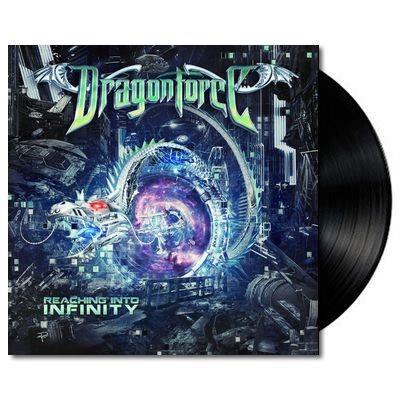 DragonForce. There’s a place for preposterousness in music. In fact, there’s not enough of it around in 2017. Metal, more aware than most lay people presume, welcomes a dose of preposterousness if it’s executed without a wry smirk. The seventh album from British band DragonForce is sort of brilliant. Their game is superfast but super-tuneful pop-metal, heavy but lathered in melodic synths, and an atmosphere of triumph akin to Europe’s “The Final Countdown” with the accelerator to the floor. Titles include “Astral Empire” and “Land of Shattered Dreams”, and the lyrics are ultra-portentous (“Dark clouds, the symphony of war/Stare now into the crystal ball/Stay strong and face the winter storm/Till the final call”). It’s all hugely catchy. I think I’m a convert. Comes in gatefold double in picture/photo/lyric inners sleeves.
DragonForce. There’s a place for preposterousness in music. In fact, there’s not enough of it around in 2017. Metal, more aware than most lay people presume, welcomes a dose of preposterousness if it’s executed without a wry smirk. The seventh album from British band DragonForce is sort of brilliant. Their game is superfast but super-tuneful pop-metal, heavy but lathered in melodic synths, and an atmosphere of triumph akin to Europe’s “The Final Countdown” with the accelerator to the floor. Titles include “Astral Empire” and “Land of Shattered Dreams”, and the lyrics are ultra-portentous (“Dark clouds, the symphony of war/Stare now into the crystal ball/Stay strong and face the winter storm/Till the final call”). It’s all hugely catchy. I think I’m a convert. Comes in gatefold double in picture/photo/lyric inners sleeves.
AVION Dispersion EP (Index Marcus Fengler)
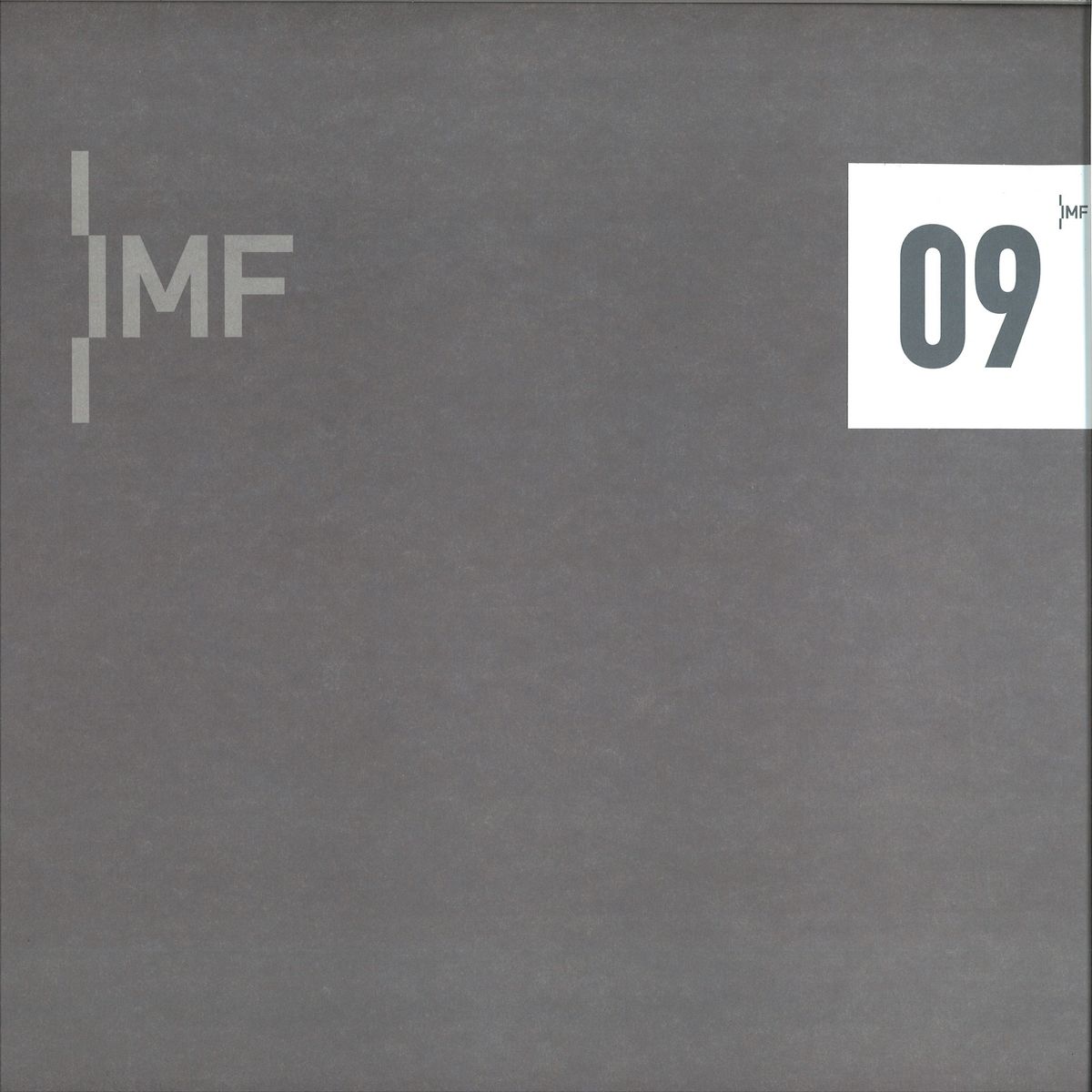 Monstrously mastered to vinyl, so that the title track sounds like an aeroplane landing in your brain… or possibly crashing into it. The A-side of this plainly presented EP has two hammering, gritty, greyed-out techno outings that are mainly for DJs at the rougher end of the spectrum. On the flip, however, are “Inverse” and “Enidan”, which take the industrial motif and move it somewhere else. The former, while still glued to a 4/4 kick, has a gurgling horror film aspect, while the latter heads for ambient waters, before becoming waylaid by some sort of electrical storm. All in all, apocalyptic music for apocalyptic times.
Monstrously mastered to vinyl, so that the title track sounds like an aeroplane landing in your brain… or possibly crashing into it. The A-side of this plainly presented EP has two hammering, gritty, greyed-out techno outings that are mainly for DJs at the rougher end of the spectrum. On the flip, however, are “Inverse” and “Enidan”, which take the industrial motif and move it somewhere else. The former, while still glued to a 4/4 kick, has a gurgling horror film aspect, while the latter heads for ambient waters, before becoming waylaid by some sort of electrical storm. All in all, apocalyptic music for apocalyptic times.
Various John Armstrong presents Afrobeat/Brasil (BBE)
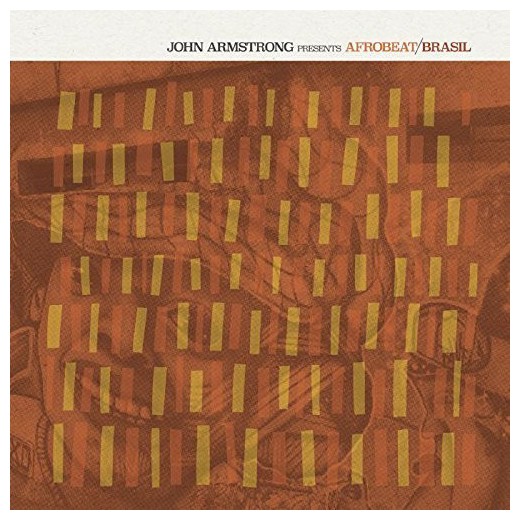 BBE, a label often associated with digging down into the obscure corners of vintage music, offers a collection of modern Brazilian music that’s heavily rooted in Afrobeat. Consisting of 14 cuts on four sides of vinyl, cleanly mastered, every track was produced and released within the last six years. Thus there’s a strong hip hop flavour (eg, rising female rapper-singer Tássia Reis) and a tint of electronic snap (eg the battering, drum-laden remix of Ellen Oléria’s “Afrofuturo” or the almost electro-pop sound of Lucas Santtana’s “Músico”), but most of the material has a more timeless, easy-going funk, of the kind boasted by Sao Paulo nine-piece Trabalhos Espaciais Manuais’ “Farofa de Banana” or album opener “Origem” by Fatboy Slim-sampled André Abujamra (the latter boasting an unlikely Irish jig section). Overall, most of it doesn’t quite have the raw attack that this writer’s ears enjoy, but it’s undeniably a well-curated overview of its chosen micro-genre.
BBE, a label often associated with digging down into the obscure corners of vintage music, offers a collection of modern Brazilian music that’s heavily rooted in Afrobeat. Consisting of 14 cuts on four sides of vinyl, cleanly mastered, every track was produced and released within the last six years. Thus there’s a strong hip hop flavour (eg, rising female rapper-singer Tássia Reis) and a tint of electronic snap (eg the battering, drum-laden remix of Ellen Oléria’s “Afrofuturo” or the almost electro-pop sound of Lucas Santtana’s “Músico”), but most of the material has a more timeless, easy-going funk, of the kind boasted by Sao Paulo nine-piece Trabalhos Espaciais Manuais’ “Farofa de Banana” or album opener “Origem” by Fatboy Slim-sampled André Abujamra (the latter boasting an unlikely Irish jig section). Overall, most of it doesn’t quite have the raw attack that this writer’s ears enjoy, but it’s undeniably a well-curated overview of its chosen micro-genre.
Lupe Fiasco The Cool (Atlantic) + Young Fathers Tape One (Anticon)
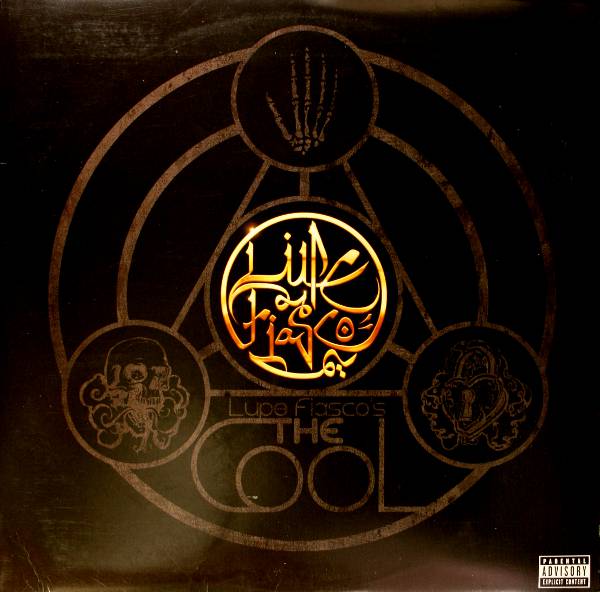
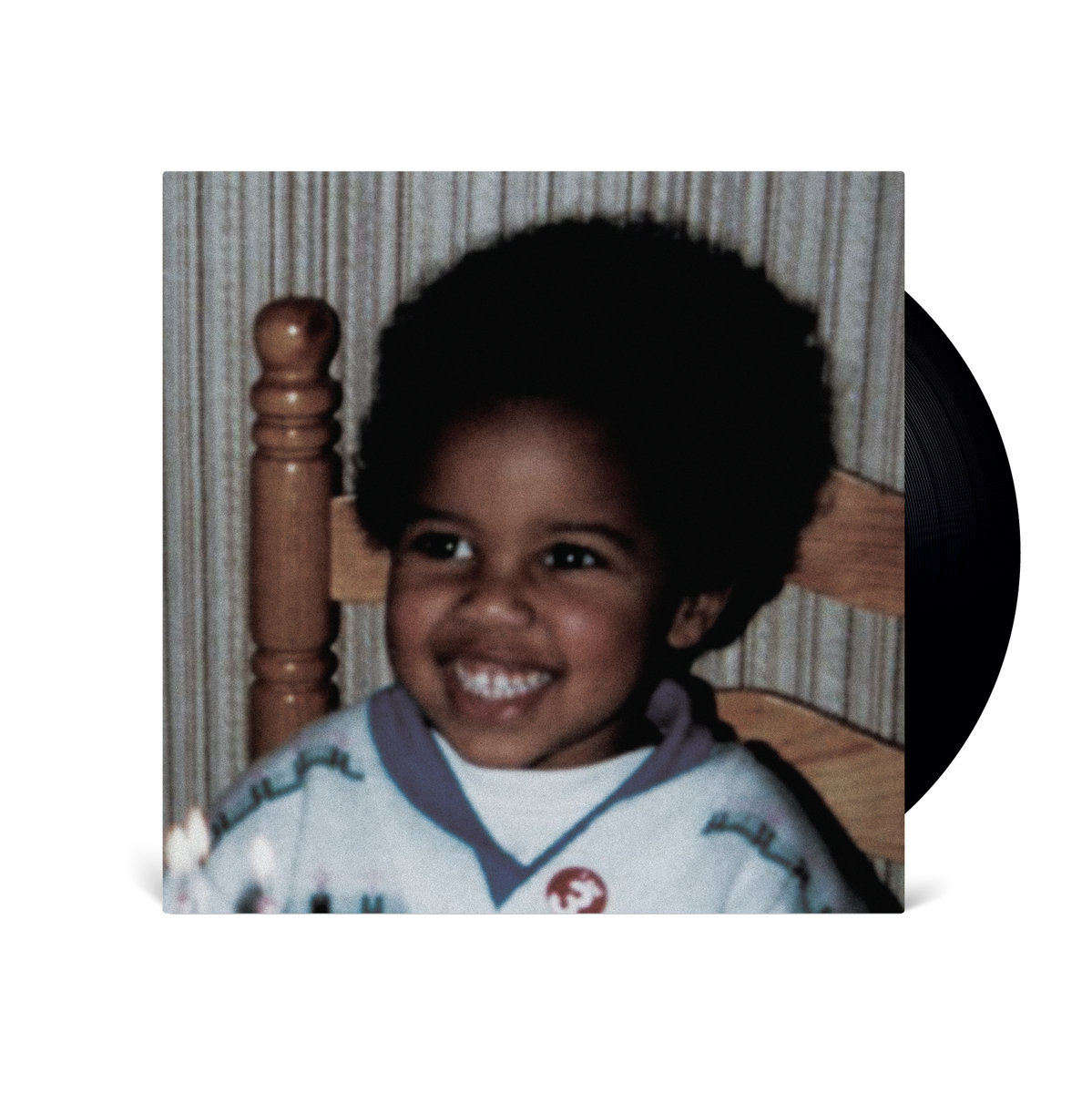 storytelling plays off against a light, jazz-marinated sound-bed and beats. If The Cool is someone in the major label big league showcasing conscious, intelligent ideas in hip hop without alienating a mainstream audience, Scottish trio Young Fathers' 2011 debut chucks out the rulebook and very much does its own thing. The two aspects that set it sonically apart are the fuzzed lo-fi production and the African vocal palette, the latter including catchy, tuneful choruses. Young Fathers would go on to win the Mercury Music Prize and, on songs such as the reggae-down-a-well skank of “Romance”, the pop potential of this outfit is already clear. In many ways they are inheritors of Massive Attack’s mantle for another generation, and this re-release only increases anticipation of where they might go next.
storytelling plays off against a light, jazz-marinated sound-bed and beats. If The Cool is someone in the major label big league showcasing conscious, intelligent ideas in hip hop without alienating a mainstream audience, Scottish trio Young Fathers' 2011 debut chucks out the rulebook and very much does its own thing. The two aspects that set it sonically apart are the fuzzed lo-fi production and the African vocal palette, the latter including catchy, tuneful choruses. Young Fathers would go on to win the Mercury Music Prize and, on songs such as the reggae-down-a-well skank of “Romance”, the pop potential of this outfit is already clear. In many ways they are inheritors of Massive Attack’s mantle for another generation, and this re-release only increases anticipation of where they might go next.
Songhoy Blues Résistance (Transgressive)
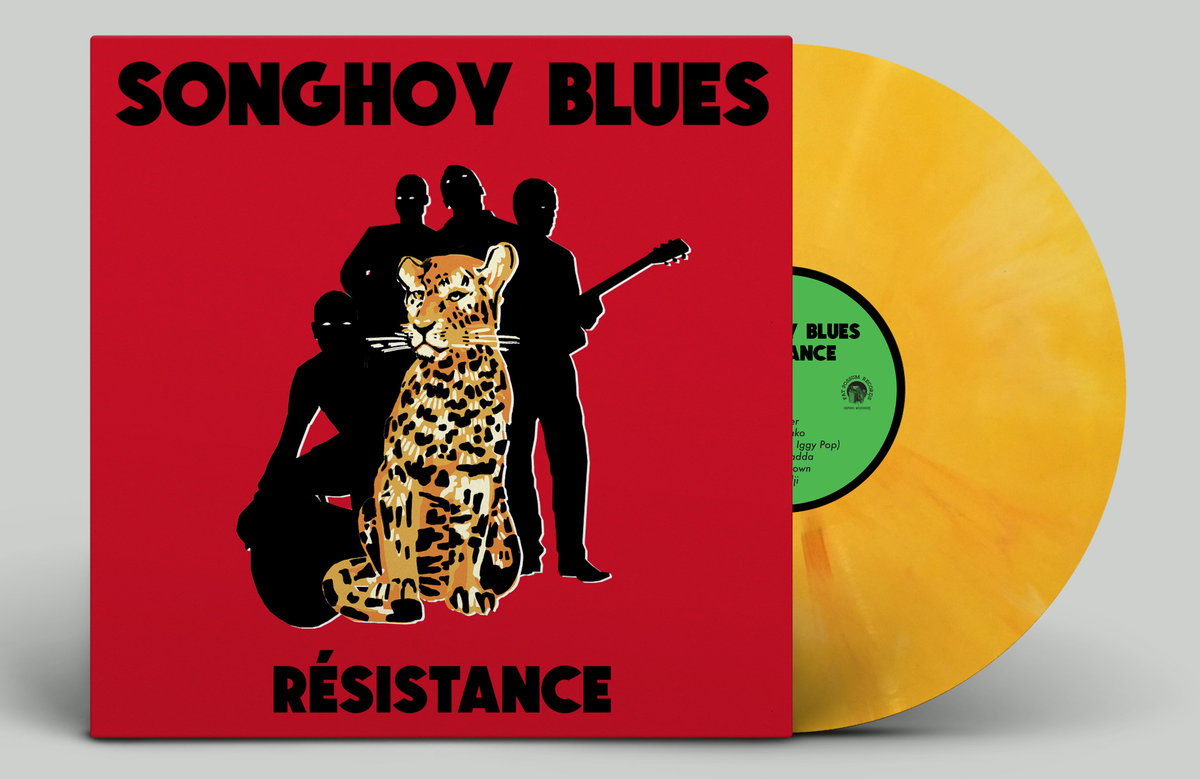 Anyone who pulls the latest album from Malian band Songhoy Blues out of its green, info inner sleeve, and places it on the turntable expecting some sort of anthropological African roots outing will be in for a shock. This lot play rock music, filtered heavily through the prism of Afro-funk. In fact Résistance is as colourful and loud as the bright yellow vinyl it arrives on. They even have Iggy Pop briefly guesting on “Sahara” (“We’re going to Sahara, baby”). They sound like a band constantly writhing around in the funk, but kind of trying to escape it and let rip with blizzards of guitar, which they do upon occasion – but they’re also capable of a more considered tunefulness, as on “Ici Bas”. Bet they’re great live…
Anyone who pulls the latest album from Malian band Songhoy Blues out of its green, info inner sleeve, and places it on the turntable expecting some sort of anthropological African roots outing will be in for a shock. This lot play rock music, filtered heavily through the prism of Afro-funk. In fact Résistance is as colourful and loud as the bright yellow vinyl it arrives on. They even have Iggy Pop briefly guesting on “Sahara” (“We’re going to Sahara, baby”). They sound like a band constantly writhing around in the funk, but kind of trying to escape it and let rip with blizzards of guitar, which they do upon occasion – but they’re also capable of a more considered tunefulness, as on “Ici Bas”. Bet they’re great live…
Alice Coltrane Turiyasangitananda World Spirituality Classics 1: The Ecstatic Music of Alice Coltrane Turiyasangitananda (Luaka Bop)
 This double in gatefold with two booklets of essays, photos and anecdotes, collects together music pulled from cassettes Alice Coltrane distributed to her spiritual community after she set up a Vedic ashram outside LA in the early Eighties. Since she had lost her husband and work-mate John Coltrane to cancer in 1967, her work had become increasingly spiritual and, from the 1980s until her death in 2007, she devoted herself primarily to her inner life, only reappearing to the wider public with the album Translinear Light in 2004 and brief subsequent tour. Some may assume, then, that this collection will just be lots of Krishna mantras and not much to get their teeth into. Far from it. Coltrane, a proven virtuoso on keyboard and harp, brings a rich musicality to the material (Indian and Nepalese devotionals), singing and colouring the production with soft synth tones and sitar. It’s approachable, blissed and melodic, full of organic input, claps and chants and background human buzz; luscious real deal chill-out by a cosmically inclined expert.
This double in gatefold with two booklets of essays, photos and anecdotes, collects together music pulled from cassettes Alice Coltrane distributed to her spiritual community after she set up a Vedic ashram outside LA in the early Eighties. Since she had lost her husband and work-mate John Coltrane to cancer in 1967, her work had become increasingly spiritual and, from the 1980s until her death in 2007, she devoted herself primarily to her inner life, only reappearing to the wider public with the album Translinear Light in 2004 and brief subsequent tour. Some may assume, then, that this collection will just be lots of Krishna mantras and not much to get their teeth into. Far from it. Coltrane, a proven virtuoso on keyboard and harp, brings a rich musicality to the material (Indian and Nepalese devotionals), singing and colouring the production with soft synth tones and sitar. It’s approachable, blissed and melodic, full of organic input, claps and chants and background human buzz; luscious real deal chill-out by a cosmically inclined expert.
Bad Company Run With The Pack + Burning Sky (Rhino)
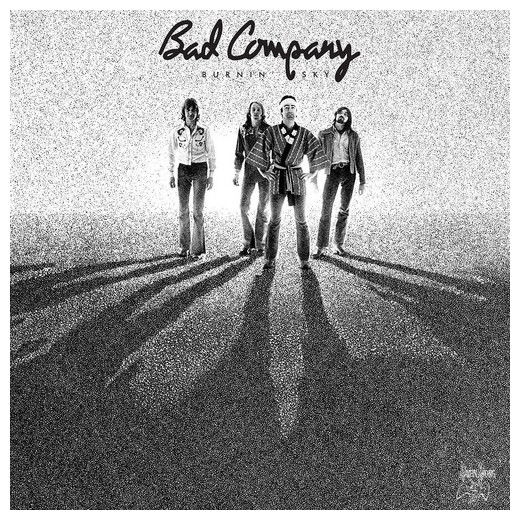 When Bad Company appeared in 1973, they were a supergroup, formed of ex-members of Free, Mott the Hoople and King Crimson, so the Seventies equivalent of Thom Yorke’s Atoms For Peace or Damon Albarn’s The Good, the Bad & the Queen. By 1976 when Run With the Pack came out, they were riding on the back of two successful albums and the management of Led Zep behemoth Peter Grant. They were a stadium-slaying monster whose hoary blues rock was already a staple of trucker-friendly American FM radio. In the case of both these re-releases sides one and two contain the original album, while sides three and four have alternate mixes (as well as one previously unreleased track, “Unfinished Story”, on Burning Sky). Some of these alternate versions have a raw charm polished from the final song – check out the early mix of “Fade Away”, for instance – but both albums are purely for Bad Company first generation uber-fans. If you want to know what the mid-Seventies really sounded like to your average US male, this is as good a place as any to listen. For me, Run With the Pack has its moments but neither album has the feisty edge or pyrotechnics of, say, Lynyrd Skynyrd. And there are too many earnest slowies.
When Bad Company appeared in 1973, they were a supergroup, formed of ex-members of Free, Mott the Hoople and King Crimson, so the Seventies equivalent of Thom Yorke’s Atoms For Peace or Damon Albarn’s The Good, the Bad & the Queen. By 1976 when Run With the Pack came out, they were riding on the back of two successful albums and the management of Led Zep behemoth Peter Grant. They were a stadium-slaying monster whose hoary blues rock was already a staple of trucker-friendly American FM radio. In the case of both these re-releases sides one and two contain the original album, while sides three and four have alternate mixes (as well as one previously unreleased track, “Unfinished Story”, on Burning Sky). Some of these alternate versions have a raw charm polished from the final song – check out the early mix of “Fade Away”, for instance – but both albums are purely for Bad Company first generation uber-fans. If you want to know what the mid-Seventies really sounded like to your average US male, this is as good a place as any to listen. For me, Run With the Pack has its moments but neither album has the feisty edge or pyrotechnics of, say, Lynyrd Skynyrd. And there are too many earnest slowies.
Benjamin Biolay Volver (Wrasse)
 A major star in Francophone countries, Benjamin Biolay has earned his stripes as an artist in the true chanson tradition, living a life worth living and reporting back in world-weary song. Volver is the sequel to last year’s Palermo Hollywood, a release named after the Buenos Aires boho district which inspired it, where Biolay retains a flat. It comes in gatefold in picture inner sleeves with outer yellow plastic transparent info casing. On much of it, Biolay appears with a host of female accomplices including, on the power-pop rocker “¡Encore Encore!”, his ex-wife Chiara Mastroianni (daughter of Catherine Deneuve, who also drops in for a chat on the maudlin trip hop ballad “Happy Hour”). If you want supple tango funk, Biolay will oblige (“L’Alcool, L’Absence”) but is equally happy with string-swathed hip hop Euro-pop (“Roma (Amor)”), the binding feature being his sensually growled lyrics and way with a song. It wanders so wildly, engaging one minute and kitsch lunacy the next, that most won’t embrace all of it but, by the same token, there’s entertainment to be had.
A major star in Francophone countries, Benjamin Biolay has earned his stripes as an artist in the true chanson tradition, living a life worth living and reporting back in world-weary song. Volver is the sequel to last year’s Palermo Hollywood, a release named after the Buenos Aires boho district which inspired it, where Biolay retains a flat. It comes in gatefold in picture inner sleeves with outer yellow plastic transparent info casing. On much of it, Biolay appears with a host of female accomplices including, on the power-pop rocker “¡Encore Encore!”, his ex-wife Chiara Mastroianni (daughter of Catherine Deneuve, who also drops in for a chat on the maudlin trip hop ballad “Happy Hour”). If you want supple tango funk, Biolay will oblige (“L’Alcool, L’Absence”) but is equally happy with string-swathed hip hop Euro-pop (“Roma (Amor)”), the binding feature being his sensually growled lyrics and way with a song. It wanders so wildly, engaging one minute and kitsch lunacy the next, that most won’t embrace all of it but, by the same token, there’s entertainment to be had.
ALSO WORTHY OF MENTION
Francis MacDonald & Harry Pye Bonjour (Shoeshine/Republic of Music): A collaboration between the visual artist Harry Pye and Teenage Fanclub drummer Francis MacDonald (who’s also a TV composer). It’s a funny record, in both senses; old-fashioned, poignant, likeable and offbeat. MacDonald is a dab hand with sweet melodic easy-listening indie numbers such as “Isle of Capri”, “Paul In Vauxhall” and the Beach Boys parody “Mike Love Fan Club”, while Pye contributes spoken word anecdotes that are perfectly written, clumsily delivered and gripping, especially “I Made Him Smile”, his account of the two times he met Lucian Freud. An eccentric treasure for those who like this sort of thing.
Tube + Berger We Are All Stars (Embassy One): Be careful what you wish for. I always hope theartsdesk on Vinyl will be sent more proper pop music. What I’d give to have Katy Perry’s “Chained to the Rhythm” on plastic (it does exist but is going to over £80 on Discogs). The best we can do is this double in gatefold on picture/info inner sleeves from rising German dance-pop duo Arndt Roerig and Marko Vidovic. It’s a strange beast, part EDM, part Euro-disco, a smidgeon of Vitalic, a smidgeon of Daft Punk. A tune such as “Quiet Time”, featuring White Lies, is typical. It has righteous elements but the end result is tech-fromage rather than techno-pop. I can’t see it charting in the UK, though, because there’s still enough moodiness, gothic sensibility and full-on dance production to put the tweens right off. Never mind, Tube + Berger should do well entertaining the more mainstream joints on Ibiza this summer.
Kathryn Williams Songs From The Novel Greatest Hits (One Little Indian): Brit writer Laura Barnett had a bestseller with her Sliding Doors-esque debut The Versions of Us in 2015, and followed it up this year with Greatest Hits, a novel about a reclusive female singer-songwriter looking back at her life as she chooses songs for a compilation of her work. It sounds a promising premise but I’ve not read it. To add another dimension, pleasingly unpredictable folk-pop singer Kathryn Williams provides a soundtrack of songs laced with her usual sweetness in a range of styles, from the skanking, off-piste “Architect” to the catchy indie-pop rhythm’n’blues of “She Wears a Dress” to the Squeeze-like “In This Garden”. Overall, a playful and interesting experiment which has its moments, but is unlikely to go down as one of the singer’s must-have releases. Comes on double in gatefold.
Do Make Say Think Stubborn Persistent Illusions (Constellation): What is it with Canada and post-rock instrumental outfits? Godspeed You! Black Emperor may be the best-loved cult in this area but Do Make Say Think are close contenders. They’re on their seventh album, which comes in illustrated gatefold double in art inner sleeves with a 12” x 12” info insert and a 12” x 24” cover art poster. They create suites of music that show off clever instrumental interplay that grooves, before exploding into gigantic eruptions of noisiness woven through with glinting fragments of melody. They’ve been doing this over 20 years and have become very good at it, resulting in an album that’s a wordless, captivating 21st Century prog rock journey. One day someone will use a track such as “Horripilation” to soundtrack the climactic scene in a timeless film or HBO series and Do Make Say Think will reap the success they deserve.
Gaby Hernandez Spirit Reflection (Mr Bongo): Chilean American Los Angeleno Gaby Hernandez presents a two disc long-player, one disc with vocals and the other instrumentals of the same songs. A regular singer on Ninja Tune-affiliated releases, notably Teebs’ Ardour album, her band is impressive, consisting of Lapalux, Kamasi Washington, Gaslamp Killer affiliate Dexter Story and others of a similar calibre. It’s easy, sunny music attached to fluid jazzy Latin rhythms. Think Bebel Gilberto filtered a little – but not too much - through a Stones Throw/Low End Theory sensibility.
Tom Hobden & Eliot James Roam (Village Green): Everyone’s having a crack at modern classical! Except this doesn’t sound hugely modern, bringing to mind the bucolic rusticity of Vaughan Williams on pieces such as the swelling “The Long Mynd”. The pair who made it are Tom Hobden of defunct indie-folk outfit Noah and the Whale and London indie producer Eliot James, both of whom wanted to investigate what they could do with strings. The result is lush and sounds like the soundtrack to a film pitched midway between a period drama and Pete Greenaway (definitely a touch of the Michael Nymans about “Plessey Wood”). It’s fulsomely crafted, in other words, although doesn’t have the disciplined modernism that appeals to theartsdesk on Vinyl’s particular modern classical tastes.
Emily Barker Sweet Kind of Blue (Kartel): I last came across UK-based Aussie Emily Barker as a third of the trio Applewood Road, who created one of last year’s loveliest albums (especially for fans of beautiful, country-tinged vocal harmonies), but she’s best known as the writer of the themes to TV shows The Shadow Line and the British version of Wallander. Lest we forget its title, her latest comes on stridently blue vinyl. It’s her third solo album (she has also recorded four with her band The Red Clay Halo) and was recorded at the legendary Sam C Phillips Recording Studio in Memphis. Songs such as the sassy southern soul of “Sunrise” deliberately acknowledge this, recalling Dusty Springfield’s classic created there. She has a great voice, emotive and sweet, and the album shows it off to fine effect on ten songs that don’t go anywhere new but, nevertheless, do what they do with effective aplomb.
Orchestra Soledad Vamonos/Let’s Go (BBE): Re-release of the long-forgotten sole album by Brooklyn salsa outfit Orchestra Soledad. Originally recorded as the Seventies dawned, it was clearly born in the shadow of the mighty Fania Records, a down’n’dirty cousin, at least as far as the recording’s lo-fi edge is concerned. The organ-fuelled ballad “I’ll Make You Queen” is a hard listen once band leader Hector Ramos’s out-of-tune vocals hit, although when he picks up his trombone later in the song, it’s lovely. For those not especially bothered about retro salsa, it’s an inessential release, but for aficionados and DJs, tracks such as “Cuero” and “Problems” make it worth the price of entry.
Isobel Anderson Chalk/Flint (Isobel Anderson): The fourth album from Belfast singer-songwriter Isobel Anderson combines simplicity with her advanced knowledge of studio manipulation (she has a PhD in Sound Art). Tunes such as “Feed Me” are firmly based around her honed capability at writing songs, the words precise and pithy, but also, when the write moment comes, the song shimmers with an underlying sonic force. Anderson’s work is often laced with sadness - “All of your songs were written for someone else” is a great line – and she’s willing to tackle issues such as abortion (on the straightforward statement of “_4284_”). She’s not the usual and deserves a wider platform for her talent.
Beta Teddy EP (Diagonal): Electronic boundary-pusher Powell follows his recent album for XL with a stark synth seven-tracker. With crude drums playing off against cheap-sounding sequencer patterns, it’s purposefully over-amped and distorted, coming on like some Nineties Japanese artist on Rephlex. The best tracks are the twisted hip hop cut-up, ”The Bust”, and the trip-hop-goes-to-Hell stylings of “Dogs on Acid”, both very tasty in a demented sort of way. Powell remains one to watch but he hasn’t yet reached a place where his music has an access point for anyone other than punk-tronic trouble-seekers (long may they reign!).
Lee Morgan The Roulette Sides (Stateside): “Cut straight to lacquer from the original production masters”, and they sound like it too, as crisp and clear as you like. Best known for his tune “The Sidewinder”, Lee Morgan also put time in with Art Blakey’s band and features heavily on John Coltrane’s epochal Blue Train album. This 10” marks the release of the Swedish documentary I Called Him Morgan, about the trumpet-player and his wife Helen, who shot and killed him a New York nightclub altercation in 1972. The three cuts – “Suspended Sentence”, “A Bid for Sid” and “Minor Strain” – were recorded in 1960 and haven’t been available in this mono vinyl for around 40 years. They fly out of the speakers with a weightless boisterousness that’s uplifting.
Ennanga Vision Ennanga Vision (Soundway): Here’s an album I really liked the sound of but which didn’t grab me the way I’d hoped. On colourful info/art gatefold with one disc on aquamarine vinyl and the other on transparent alco-pop pink, it’s a collaboration between Jesse Hackett of Kenyan-British fusion outfit Owiny Sigoma Band and Albert Ssempeke, a musician who comes from a the bloodline of Bugandan court musicians, ie connected to the royalty of an ethnic kingdom within Uganda. The idea of modern electronica blending with roots African styles is appealing and there’s some great experimentation on board, vocals and tribal percussion mixing with loops and sci-fi effects. Unfortunately, the whole rarely gels in a way that’s any more than conceptually interesting, although tracks such as “Like a Football” have a certain joyful charm.
Cody ChesnuTT My Love Divine Degree (One Little Indian)
Any album that opens with the lines “Anything can happen and the music is good” is promising. The third studio album from Atlanta heavy soul player Cody ChesnuTT, on gatefold, is a work out of time. Unlike his peer, Anthony Hamilton, largescale success has proved elusive to ChesnuTT but this doesn’t stop him from continuing to combine classic Stax-style bluesy rhythm’n’blues soulfulness with production that has hip hop’s electronic snap. The result, this time round, is a collection that has a rough-edged charm and good feeling in its lyrics and vocal delivery but which, eventually, lacks the songs to really bust out and stick around. It is, however, attempting something different from the usual R&B clichés and, for that, should be commended.
Sam Airey In Darkened Rooms (Hide & Seek): Debut from Welsh singer-songwriter that usually avoids the clichés of the genre, ie falsetto voice-breaking, faux-vulnerability, and, to some degree, non-specificity. On white vinyl, it opens strongly with “Camera Lens” and “Epitaph”, then settles down into an articulate downbeat atmosphere, like someone sitting in a smoky, half-empty pub, pondering whatever happened to their life. It’s a full band affair, for the most part, so the songs have body, which aids Airey’s cause. All in all, a grower, especially for those looking for solace.
The Heliocentrics A World of Masks (Soundway): Drummer Malcolm Catto’s prolific and uncategorizable unit return with a new sound and a new singer. She’s from Slovakia, and is called Babora Patkova, and her stylings – sometimes whispery mournful and sometimes vaguely grace Slick-ish - sit easily within the avant-global jazz-fusion stew the band conjur. In a limited edition on 1500 on gold vinyl in single gatefold, The Heliocentrics are charting new and different terrain, with a strong Middle Eastern flavour on this occasion, but I cannot find a way in to enjoy it.
Various Now That’s What I Call Classic Rock (Sony): As the Now That’s What I Call Music compilation series heads for its 100th edition, the media noise surrounding it will increase. And it is extraordinary that their collections of the latest hits, which launched in 1983, are still going strong, having survived the advent of file-sharing, then downloads, then streaming. Who’s buying them? There are apparently those who collect every one. Which sounds scary. Why would anyone do that? This classic rock vinyl special gathers together the most obvious tunes by the most obvious bands, so Queen’s “We Will Rock You”, Meat Loaf’s “Bat Out of Hell”, even Journey’s shitty “Don’t Stop Believin’”. The mastering has something to be desired but every song is, indeed, a classic (apart from fucking Journey). The question is, who on earth is this is aimed at? Anyone who likes these tunes will have them already, 500 times, so we must presume it’s something younglings bought for generic dads on Father's Day. Hey pop, the seasons don’t fear the reaper, nor do the wind, the sun and the rain…
We welcome any and all vinyl for review. Please hit thomash.green@theartsdesk.com for a postal address.
Share this article
The future of Arts Journalism
You can stop theartsdesk.com closing!
We urgently need financing to survive. Our fundraising drive has thus far raised £49,000 but we need to reach £100,000 or we will be forced to close. Please contribute here: https://gofund.me/c3f6033d
And if you can forward this information to anyone who might assist, we’d be grateful.

Subscribe to theartsdesk.com
Thank you for continuing to read our work on theartsdesk.com. For unlimited access to every article in its entirety, including our archive of more than 15,000 pieces, we're asking for £5 per month or £40 per year. We feel it's a very good deal, and hope you do too.
To take a subscription now simply click here.
And if you're looking for that extra gift for a friend or family member, why not treat them to a theartsdesk.com gift subscription?
more New music
 Doja Cat's 'Vie' starts well but soon tails off
While it contains a few goodies, much of the US star's latest album lacks oomph
Doja Cat's 'Vie' starts well but soon tails off
While it contains a few goodies, much of the US star's latest album lacks oomph
 Mariah Carey is still 'Here for It All' after an eight-year break
Schmaltz aplenty but also stunning musicianship from the enduring diva
Mariah Carey is still 'Here for It All' after an eight-year break
Schmaltz aplenty but also stunning musicianship from the enduring diva
 Album: Solar Eyes - Live Freaky! Die Freaky!
Psychedelic indie dance music with a twinkle in its eye
Album: Solar Eyes - Live Freaky! Die Freaky!
Psychedelic indie dance music with a twinkle in its eye
 Album: Night Tapes - portals//polarities
Estonian-voiced, London-based electro-popsters' debut album marks them as one to watch for
Album: Night Tapes - portals//polarities
Estonian-voiced, London-based electro-popsters' debut album marks them as one to watch for
 Album: Mulatu Astatke - Mulatu Plays Mulatu
An album full of life, coinciding with a 'farewell tour'
Album: Mulatu Astatke - Mulatu Plays Mulatu
An album full of life, coinciding with a 'farewell tour'
 Music Reissues Weekly: Sly and the Family Stone - The First Family: Live At Winchester Cathedral 1967
Must-have, first-ever release of the earliest document of the legendary soul outfit
Music Reissues Weekly: Sly and the Family Stone - The First Family: Live At Winchester Cathedral 1967
Must-have, first-ever release of the earliest document of the legendary soul outfit
 Album: Robert Plant - Saving Grace
Mellow delight from former Zep lead
Album: Robert Plant - Saving Grace
Mellow delight from former Zep lead
 Brìghde Chaimbeul, Round Chapel review - enchantment in East London
Inscrutable purveyor of experimental Celtic music summons creepiness and intensity
Brìghde Chaimbeul, Round Chapel review - enchantment in East London
Inscrutable purveyor of experimental Celtic music summons creepiness and intensity
 Album: NewDad - Altar
The hard-gigging trio yearns for old Ireland – and blasts music biz exploitation
Album: NewDad - Altar
The hard-gigging trio yearns for old Ireland – and blasts music biz exploitation
 First Person: Musician ALA.NI on how thoughts of empire and reparation influenced a song
She usually sings about affairs of the heart - 'TIEF' is different, explains the star
First Person: Musician ALA.NI on how thoughts of empire and reparation influenced a song
She usually sings about affairs of the heart - 'TIEF' is different, explains the star
 Album: The Divine Comedy - Rainy Sunday Afternoon
Neil Hannon takes stock, and the result will certainly keep his existing crowd happy
Album: The Divine Comedy - Rainy Sunday Afternoon
Neil Hannon takes stock, and the result will certainly keep his existing crowd happy
 Music Reissues Weekly: Robyn - Robyn 20th-Anniversary Edition
Landmark Swedish pop album hits shops one more time
Music Reissues Weekly: Robyn - Robyn 20th-Anniversary Edition
Landmark Swedish pop album hits shops one more time

Add comment